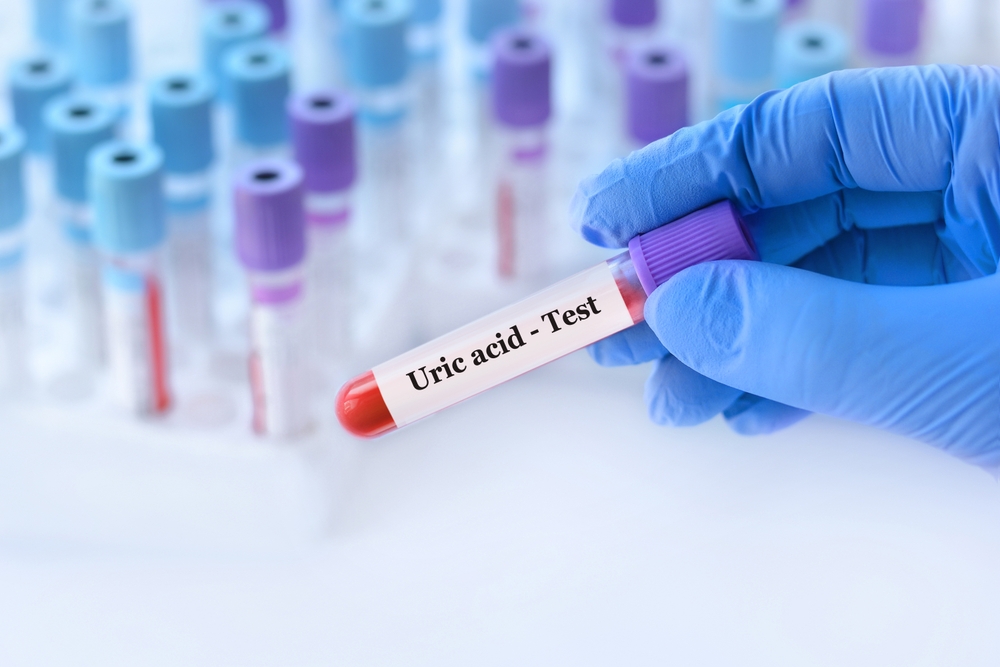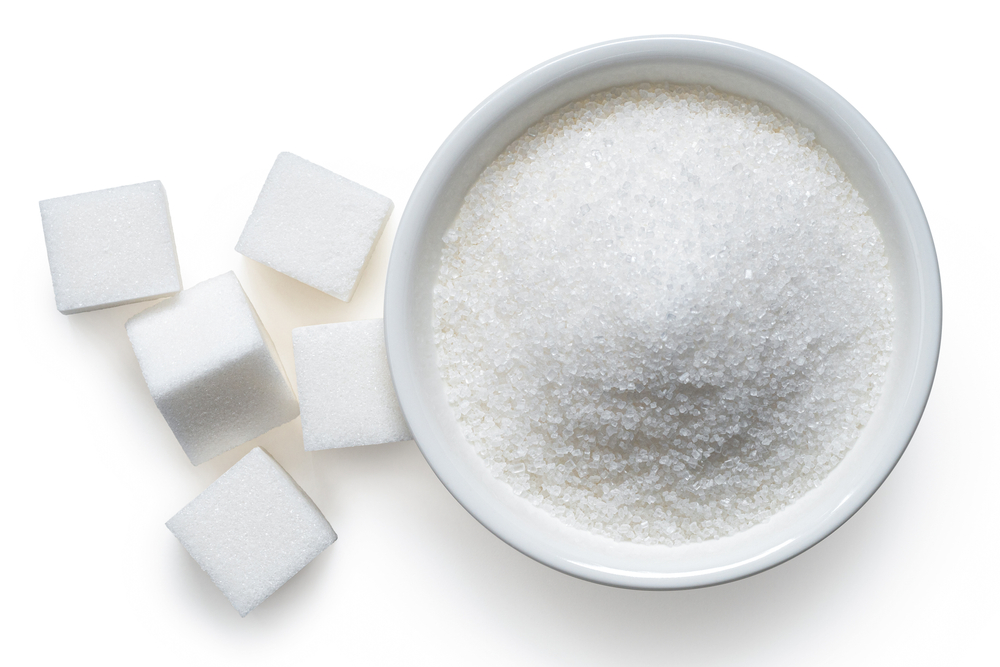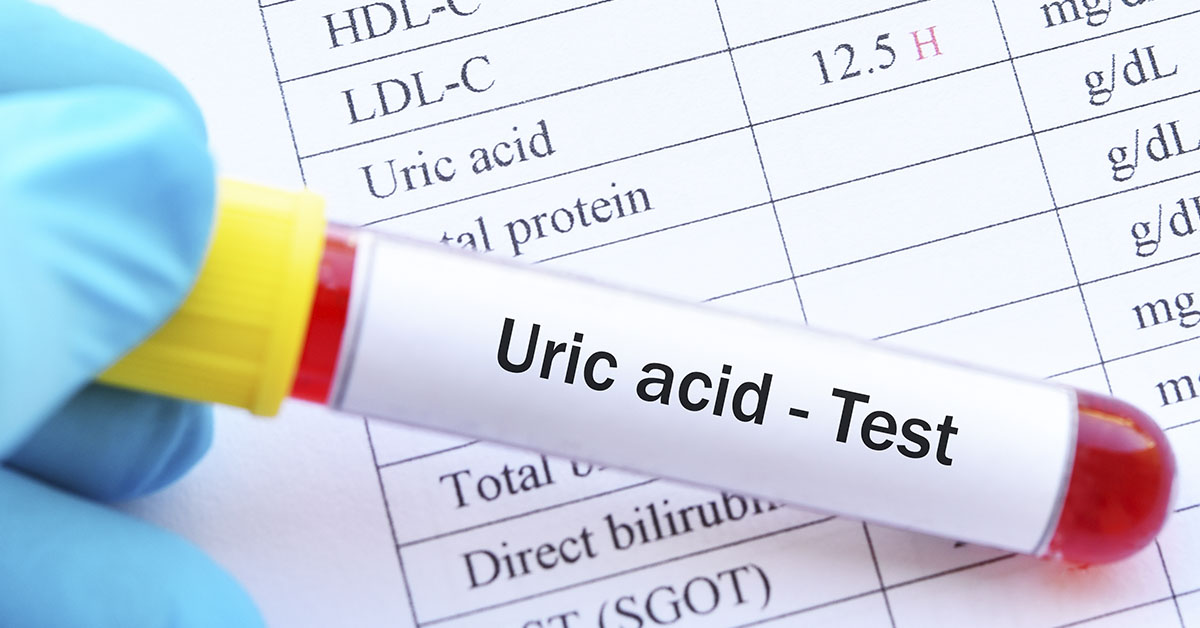Most people don’t think about their uric acid levels. It’s rare for them to become too low, but high levels could cause gout, kidney disease, inflammation, and other health issues. Uric acid is a natural waste product the body makes while digesting foods with a chemical called purines. Purine-rich foods include red meat, sardines, and beer. Fortunately, there are many natural ways to reduce uric acid levels in the body. [1]
Causes of High Uric Acid Levels

The reason for high uric acid levels (also called hyperuricemia) is not always clear, but some factors include genetics, diet, health, and other potential causes. Risk factors include:
- Being male
- Diabetes
- Diuretics
- Consuming alcohol
- Metabolic syndrome
- Hypothyroidism
- Obesity
- Certain immunosuppressant drugs
- Blood cancers, psoriasis, and certain kinds of anemia
- A diet high in foods containing purines
Furthermore, certain medical conditions and treatments are linked with hyperuricemia. This includes gout, cancer treatment, and kidney disease. Gout is a form of arthritis where uric acid builds up in joints and tissues, which causes pain and swelling. When it comes to cancer treatment, cells release purines when they die, which raises uric acid levels during treatments like chemotherapy. And finally, the kidneys filter waste, like uric acid, from the blood. When they are damaged from disease and can’t function properly, waste products can pile up in the blood.
Some people with hyperuricemia may have no symptoms at all. Symptoms may only appear after having high levels for a prolonged period, which could cause health issues like gout and kidney stones. So signs of gout include painful and swollen joints with shiny, discolored skin. Signs of kidney stones include back pain, frequent urination, cloudy or bloody urine, and nausea or vomiting.
Doctors often order uric acid tests for people with gout, kidney disease, or undergoing chemotherapy. Treatment would often involve healing those issues. People with high levels and no symptoms are unlikely to require treatment unless symptoms develop. But many people naturally lower these levels to prevent developing these conditions. Fortunately, there are many ways to do this, but people with hyperuricemia should work with their healthcare practitioners to monitor their levels and make changes that are healthy and efficient. [2]
Read More: What to Drink When You Have Acid Reflux Symptoms (and What to Avoid)
How to Reduce Uric Levels in the Body

What steps can be taken to reduce uric acid levels in the body? What foods should we avoid in order to achieve optimum uric acid levels?
Eat Fewer Foods With High Levels of Purine

When digested, these kinds of food lead to higher uric acid in the body. Therefore, limiting these kinds of products, including red meat, high-purine seafood, and organ meats, is advisable. Although some vegetables are rich in purine, a study from 2020 found that reducing consumption of them may not impact uric acid levels.
Avoid Sugar

When the body digests sugar, it releases purines and increases uric acid levels. Sugar comes in many forms like granulated sugar, high fructose corn syrup, and many more. To reduce the amount of sugar in your diet, check food labels to assess their sugar content — you may be surprised how many products have sweeteners snuck into them. At the same time, limit processed and packaged foods and opt to eat more whole foods. Swap desserts and sweet snacks for fresh fruit. Additionally, replace sugary drinks and fruit juices with sparkling water, unsweetened teas, and coffees. Sugars in beverages are absorbed faster than foods, resulting in spiked blood sugar levels and higher amounts of uric acids.
Watch What You Drink

Stay hydrated and sip on water throughout the day to help the kidneys flush out the excess uric acid more quickly. Meanwhile, avoid drinking alcohol that could dehydrate you and cause high uric acid levels. Even worse, some alcoholic drinks, namely beer, contain high amounts of purine, although all types of alcohol can heighten the body’s production of purine.
At the same time, coffee may help reduce uric acid levels by making the body excrete it more quickly and lowering the uric acid production rate. However, some studies suggest that coffee doesn’t have any impact, and more research is needed to confirm one way or the other. [3]
Eat More Fruits and Vegetables

Consuming more fiber and vitamin C could help lower uric acid levels. It’s always best to attain these nutrients through foods rather than supplements. A healthy diet rich in produce will also yield more health benefits.
Foods high in fiber include:
- Legumes like chickpeas and lentils
- Grains like brown rice, quinoa, and oats
- Fruits like apples and pears
- Vegetables like spinach and broccoli
Foods rich in vitamin C include:
- Fruits like oranges, grapefruits, kiwis, and strawberries
- Vegetables like broccoli, tomatoes, and bell peppers.
Either way, cherries are an important addition to the diet. They are good sources of fiber and vitamin C, and studies have linked cherries and cherry juice to lowering uric acid levels for people with gout. Further studies need to investigate the long-term benefits of cherries in this condition but until then it may be beneficial to snack on them and sip on unsweetened cherry juice.
Read More: How To Help Naturally Reverse Gout And Relieve Joint Pain
Manage Obesity and Blood Sugar Levels

Unfortunately, hyperuricemia has been linked to the development of diabetes. Also, people with high blood sugar have a heightened risk of developing hyperuricemia and its consequences. Therefore, it’s important to check blood sugar levels during routine checkups, even for people who don’t have diabetes or pre-diabetes. Similarly, obesity could also contribute to increased production of uric acid levels and retain them instead of properly excreting them through the urine. People who are overweight and are concerned about hyperuricemia should speak to their healthcare practitioner to create a healthy and sustainable weight loss plan.
Examine Your Supplements and Medications

Certain supplements and medications could contribute to higher uric acid levels in the blood. Speak to your healthcare practitioner if you have hyperuricemia, and take anything on this list to find a better alternative. Do not go off of your medication or make adjustments without professional guidance.
- Niacin (vitamin B-3)
- Aspirin
- Diuretics
- Pyrazinamide
- Levodopa
- Beta-blockers, ACE inhibitors, and other blood pressure medications
- Immune-suppressing drugs like cyclosporine and tacrolimus [4]
Read More: 10 Reasons Why You Should Start Eating Celery More Often
Sources
- “High Uric Acid Level.” Cleveland Clinic. May 15, 2018
- “What are the effects of high and low uric acid levels?” Medical News Today. Claire Sissons. March 2, 2023
- “6 ways to lower uric acid levels naturally.” Insider. Laura Goldman. October 7, 2020
- “Natural Ways to Reduce Uric Acid in the Body.” Healthline. Noreen Iftikhar, MD. August 18, 2022

